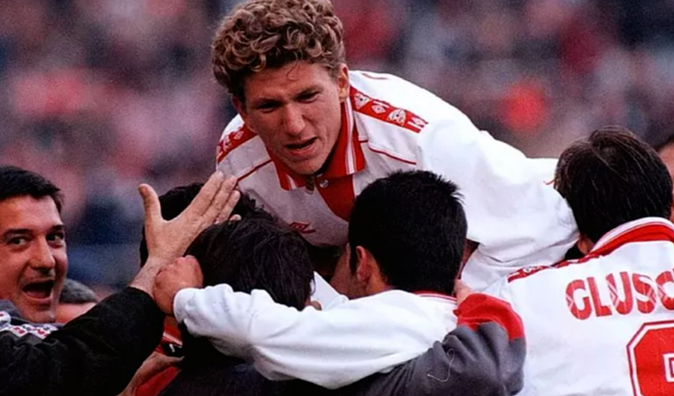Former footballer
David Cañas
, a native of
San Juan de Aznalfarache (Seville)
, is one of the fourteen arrested for his alleged membership in a group that was supposedly engaged in transporting drugs by road in cars that were camouflaged so that they had the appearance of vehicles company commercials.
Cañas
has been released with charges and on bail.
In the operation, 9 and a half kilos of cocaine
, almost a kilo of amphetamine, more than half a kilo of heroin and almost 250,000 euros in cash
have been seized .
Investigation sources have indicated that the arrested footballer, who was a member of
Sevilla FC
.
in the 1998-1999 season and currently plays for
AD Parla
, he was one of the people who allegedly moved drugs, which is why he is considered one of those responsible for the "logistics" of this criminal organization dismantled by the
Civil Guard
.
The armed institute has specified in a note that those detained for crimes of drug trafficking, identity theft and money laundering are nine men and five women, and sources close to the investigation have told EFE that most of the arrests have been made in
Andalusia
.
The
'Marking' operation
, which according to the sources consulted owes its name to this footballer, began in February of this year with the identification of a vehicle in which the Civil Guard found a large amount of cash that the driver could not justify its lawful origin.
As a result of this location, this operation began in which an alleged network dedicated to international drug trafficking has been discovered.
The investigated organization used heated vehicles to transport drugs and money, in such a way that they came to print them as commercial vehicles.
The members of the network took many security measures, especially when traveling when they transported drugs or money.
These were hidden in false bottoms that they made in their workshop in the Seville town of
Tomares
.
The alleged perpetrators traveled with screen-printed vehicles from well-known companies and even wore the uniforms of their workers to avoid police checks.
The group moved a large amount of drugs that came from South America, so they made frequent trips to
Colombia and the Dominican Republic
to organize shipments.
During the investigation, part of the authors moved to
Madrid
in order to get away from other distributors with whom they had a "manifest enmity" and "position themselves closer to the main suppliers of their distribution network."
Once all the members of the organization and the role that each one of them performed were identified, the Investigating Court number 9 of Seville was requested for 12 entries and searches in the provinces of
Madrid, Ciudad Real, Cádiz and Seville
, in in which some 200 Civil Guard agents participated, who arrested the 14 suspects.
According to the criteria of The Trust Project
Know more
Seville
Civil Guard
talk
Real city
Cadiz

